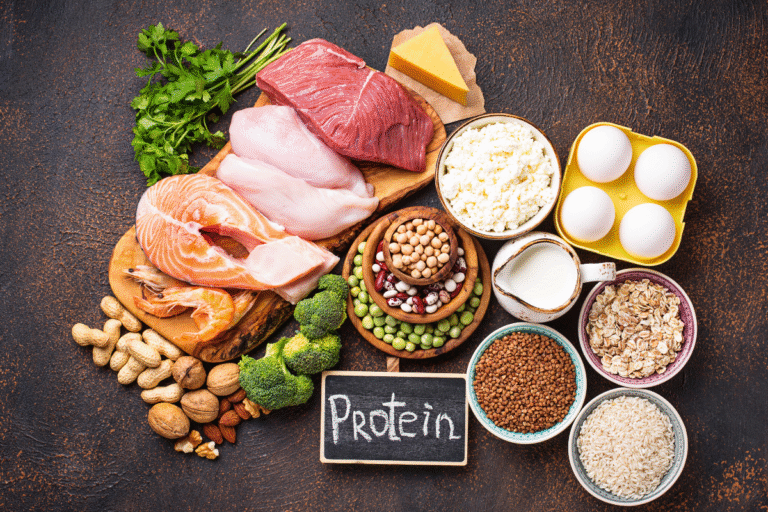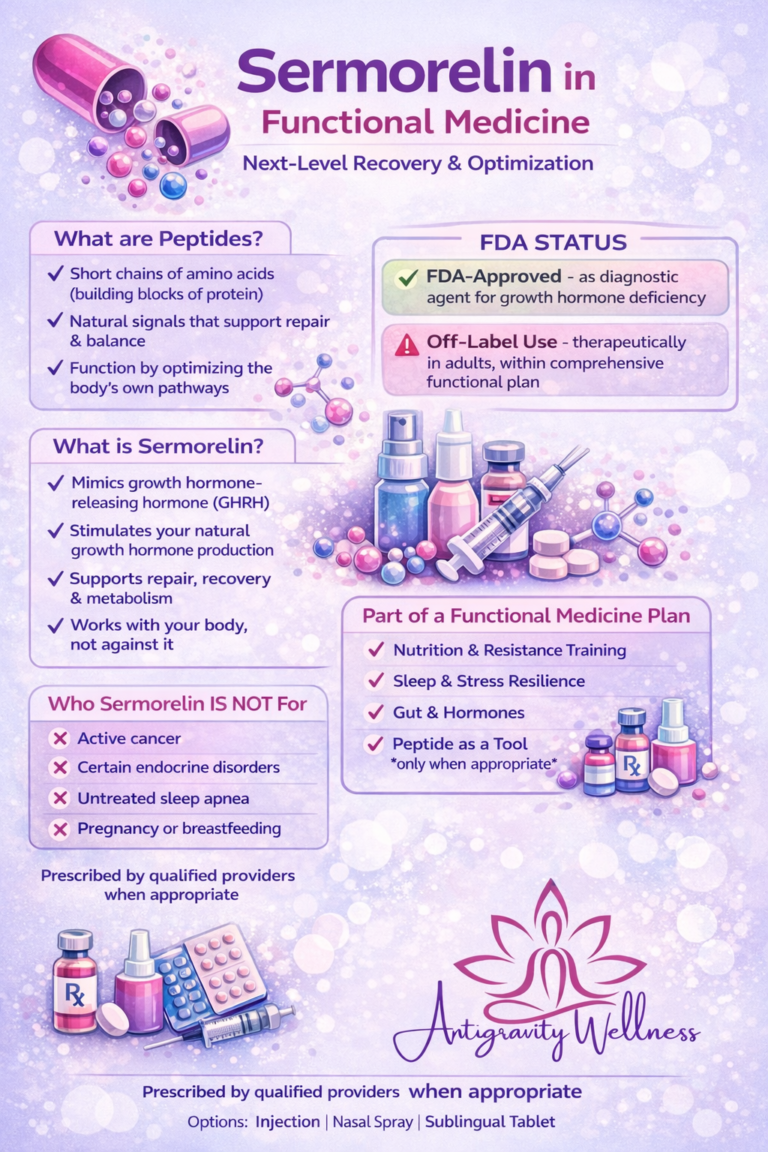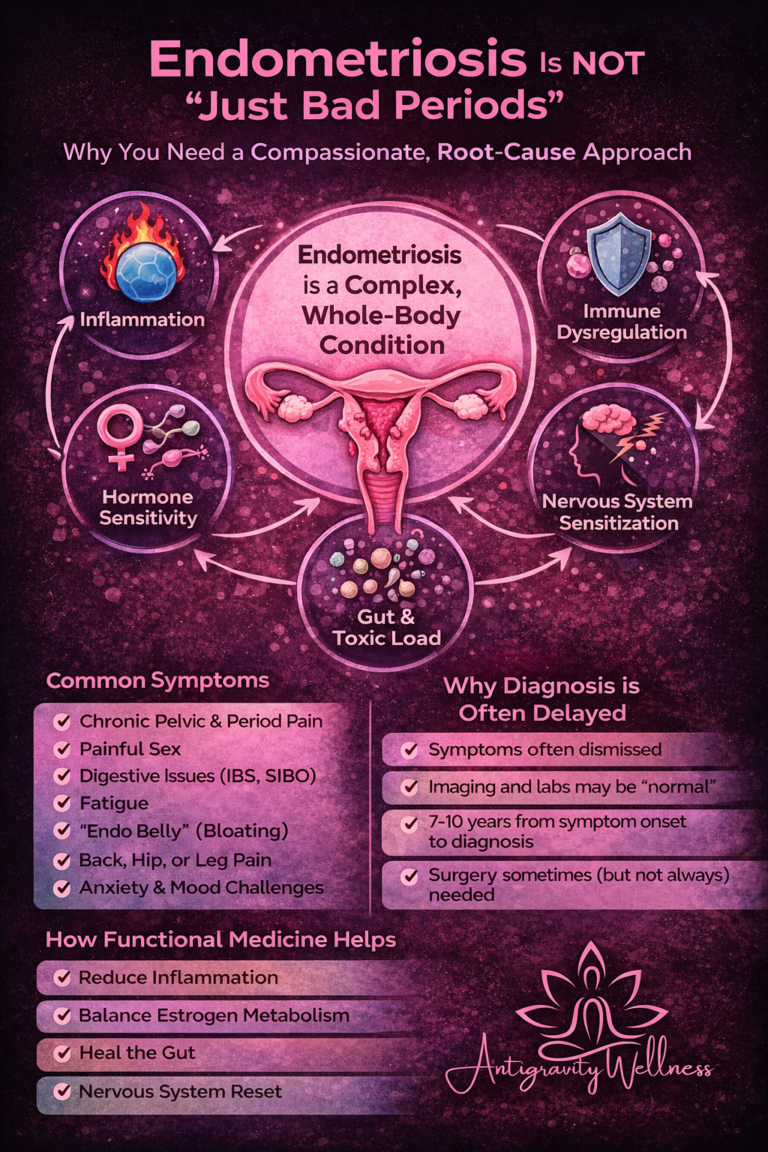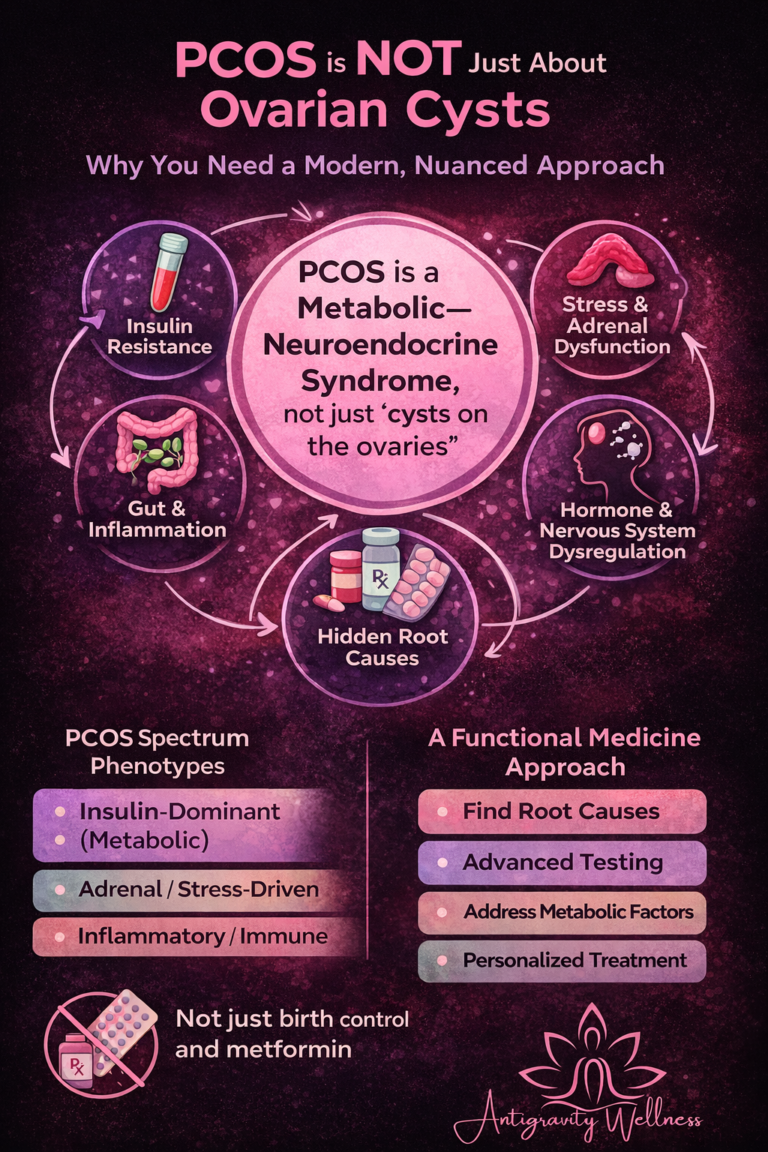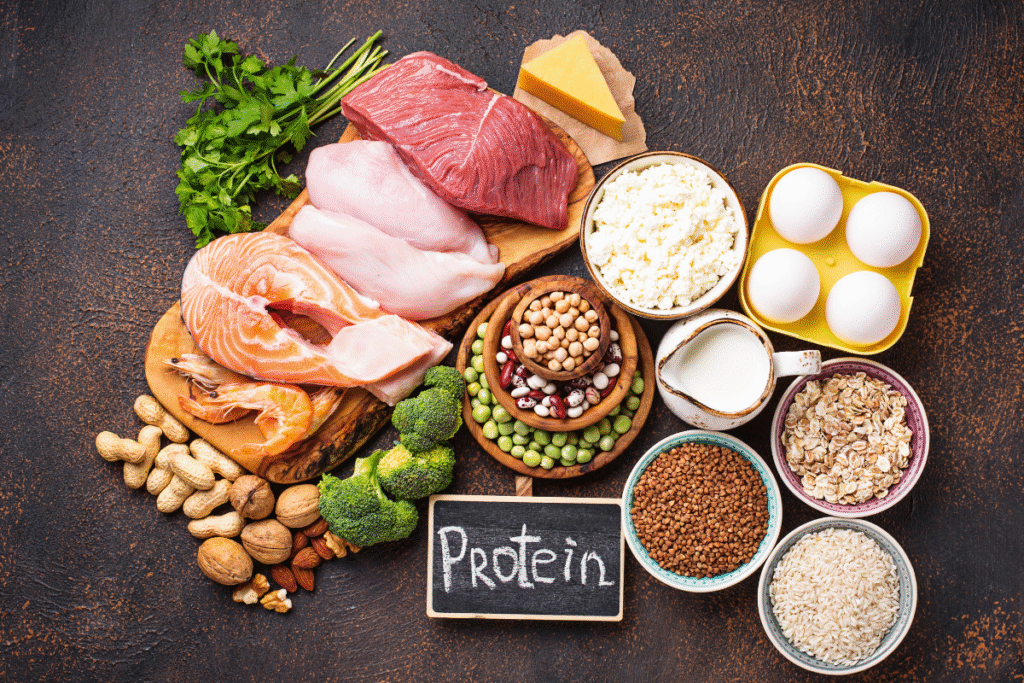
“I thought I was doing everything right…”
Jen stared at me over Zoom, frustration etched across her face. She had recently turned 43 and had been eating “clean,” exercising several times a week, and trying intermittent fasting like her friends suggested.
But something was off.
Her belly had slowly expanded. Her energy was tanking. Her cravings felt out of control. She said she felt like she was falling apart, and none of her old strategies were working anymore.
When I asked about her protein intake, her answer was common:
“I have some chicken at dinner, maybe a yogurt snack—why?”
What she didn’t realize is what I see every single day in women going through perimenopause: their bodies are changing, and so must their nutrition.
Let’s talk about why protein is the #1 most overlooked tool to support hormone balance, metabolism, and muscle retention during perimenopause—and exactly how to fix it.
What Happens to Protein Needs in Perimenopause?
Between your mid-30s and early 50s, estrogen, progesterone, DHEA, and testosterone levels begin to shift. These changes affect nearly every system in your body—including your muscle mass, metabolism, and insulin sensitivity.
✅ You lose muscle faster
✅ Your metabolism slows down
✅ You store more fat around your belly
✅ Blood sugar becomes harder to regulate
✅ Recovery from workouts takes longer
✅ You may feel weaker, hungrier, and more tired
The fix? More protein, more consistently, and more strategically.
Why Protein is Crucial for Hormonal Health
Protein is made up of amino acids, and your body uses those amino acids to:
- Build and repair muscle tissue
- Synthesize hormones like estrogen, progesterone, and thyroid hormones
- Regulate blood sugar and insulin
- Reduce cortisol spikes
- Support detox pathways through the liver
- Strengthen hair, skin, and nails
- Fuel a healthy immune system
Without enough protein, your body will struggle to maintain balance, especially as your hormones become less predictable.
Signs You’re Not Eating Enough Protein
You might be under-consuming protein if:
- You’re hungry shortly after meals
- Your muscles feel soft or weak, despite exercise
- You’re gaining weight even with the same habits
- Your hair is thinning or nails are brittle
- You get sore or tired easily
- Your blood sugar feels unstable (shaky, hangry, moody)
How Much Protein Do You Actually Need?
In perimenopause, most women need 0.8–1.2 grams of protein per pound of ideal body weight.
💡 Example: If your ideal weight is 150 lbs, aim for 120–150 grams/day.
And no—you don’t have to eat plain chicken breast all day.
You do need to spread it out, aim for real food sources, and use protein powders as needed to hit your goals.
Top Protein Sources for Women 35+
Here’s a list of hormone-supportive, high-protein foods to mix and match:
Animal-Based:
- Eggs and egg whites
- Chicken, turkey, lean beef
- Salmon, tuna, cod, shrimp
- Greek yogurt (dairy or dairy-free)
- Cottage cheese
- Whey or collagen protein powders
Plant-Based:
- Tempeh, tofu, edamame
- Lentils, chickpeas, black beans
- Hemp seeds, chia seeds, pumpkin seeds
- Vegan protein blends (pea, rice, etc.)
- Quinoa and buckwheat (higher-protein grains)
Protein Timing Tips for Hormone Health
- Start your day with 30g+: This sets the tone for blood sugar and cortisol.
- Eat protein at every meal: Don’t save it all for dinner!
- Add 15–25g post-workout: This boosts recovery and muscle preservation.
- Snack smart: Use protein-rich snacks like boiled eggs, protein bars, or shakes.
- Add-ins count: Stir collagen into coffee, hemp seeds into salads, or Greek yogurt into smoothies.
Case Study: “Jen,” Age 43
Jen came to Antigravity Wellness feeling defeated. She was doing HIIT workouts 4x/week, skipping breakfast, and wondering why her belly was growing and her energy was in the gutter.
We ran labs that showed:
- High fasting cortisol
- Low progesterone and DHEA
- Low-normal thyroid
- Elevated insulin
- Mid-range testosterone
Her daily protein intake? About 45g on a good day.
We created a customized protocol:
✅ 120g protein/day, starting with 30g at breakfast
✅ Shifted workouts to strength training + walking
✅ Balanced meals every 4–5 hours
✅ Started adaptogens and adrenal support
✅ Optimized sleep and added creatine
📉 Within 4 weeks, her energy rebounded.
💪 In 8 weeks, her waist measurements dropped 2 inches and her cravings disappeared.
🧠 At 12 weeks, she told me, “I finally feel like myself again.”
How Antigravity Wellness Can Help
At Antigravity Wellness, we go beyond band-aid care. Our comprehensive hormone programs include:
✅ Personalized protein and nutrition guidance
✅ In-depth lab testing (including DUTCH, thyroid, cortisol, and insulin)
✅ Hormone replacement therapy when appropriate
✅ 1:1 support with functional nurse and provider care
✅ Meal plans, recipes, and supplement protocols
✅ Access to our Protein Made Easy guide and other client-exclusive tools
✅ Ongoing coaching and community support
We don’t just tell you to eat more protein—we show you how it fits into your life, your goals, and your physiology.
Whether you’re just starting to feel “off” or you’re in full hormone chaos, we meet you where you are—and walk with you through it.
References
- Phillips SM. Protein requirements and supplementation in strength sports. Nutrition. 2004. https://pubmed.ncbi.nlm.nih.gov/15212752/
- Protein Source and Muscle Health in Older Adults: A Literature Review. 2021. https://pmc.ncbi.nlm.nih.gov/articles/PMC7996767/
- Campbell WW, Leidy HJ. Dietary protein and resistance training effects on muscle and metabolic health. Nutrients. 2007. https://pubmed.ncbi.nlm.nih.gov/18187436/
- Gorissen SHM, Witard OC. Characterizing the muscle anabolic potential of dairy, meat, and plant-based protein sources in older adults. Nutrients. 2018. https://pubmed.ncbi.nlm.nih.gov/28847314/
- Layman DK et al. Dietary protein and exercise have additive effects on body composition during weight loss. J Nutr. 2005. https://pubmed.ncbi.nlm.nih.gov/16046715/
Ready to Take the Next Step?
📍Live in WA or OR? Book your Brief Initial Consult Call to get personalized 1:1 care with Dr. Nicole and her team.
Medical Disclaimer:
This article is for educational purposes only and is not intended to diagnose, treat, or cure any medical condition. Please consult with your licensed healthcare provider before starting any new supplement, exercise, or nutrition program, especially if you are taking medications or have chronic health conditions. Clients working with Antigravity Wellness receive personalized care tailored to their unique labs, symptoms, and goals.

